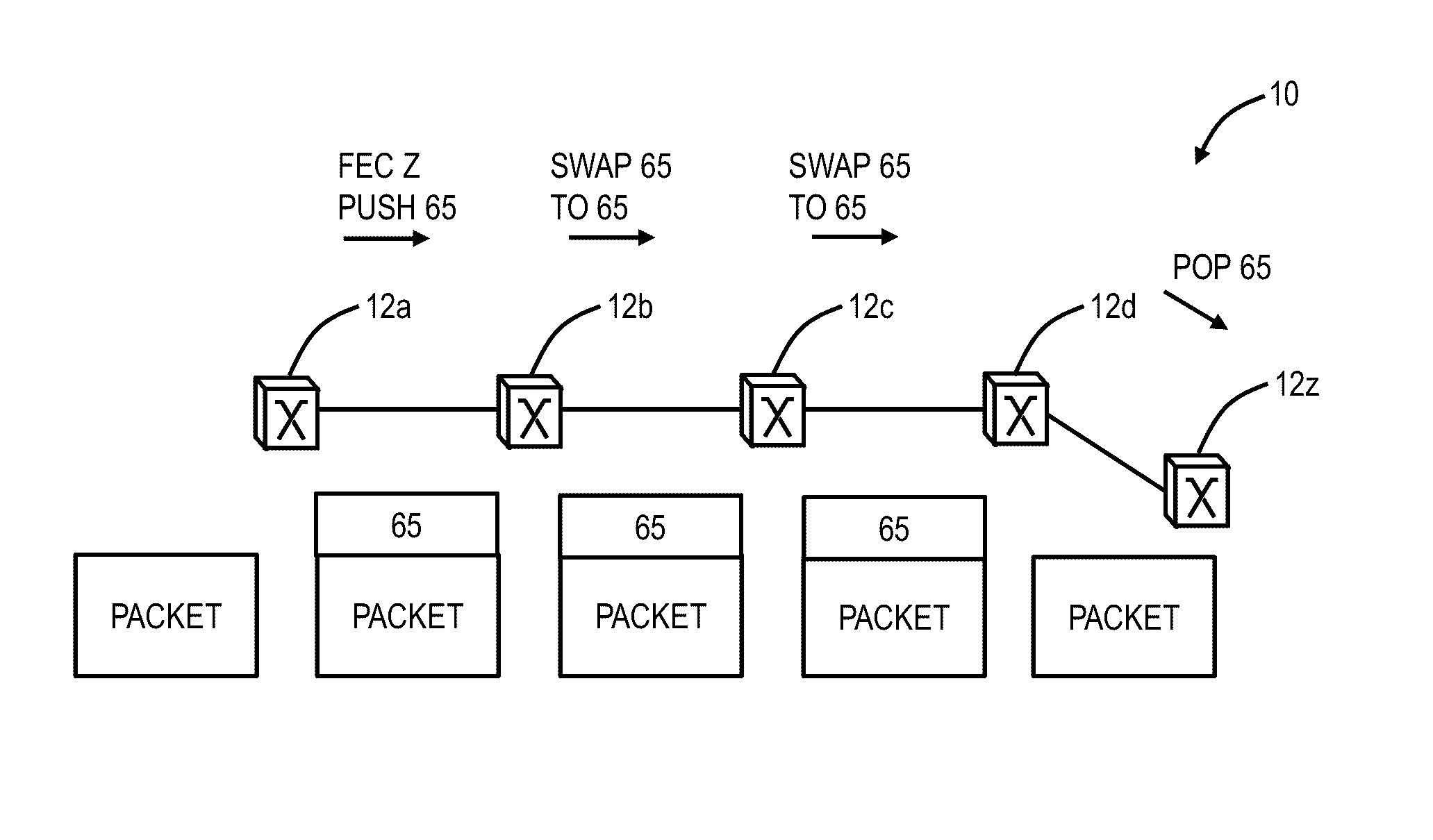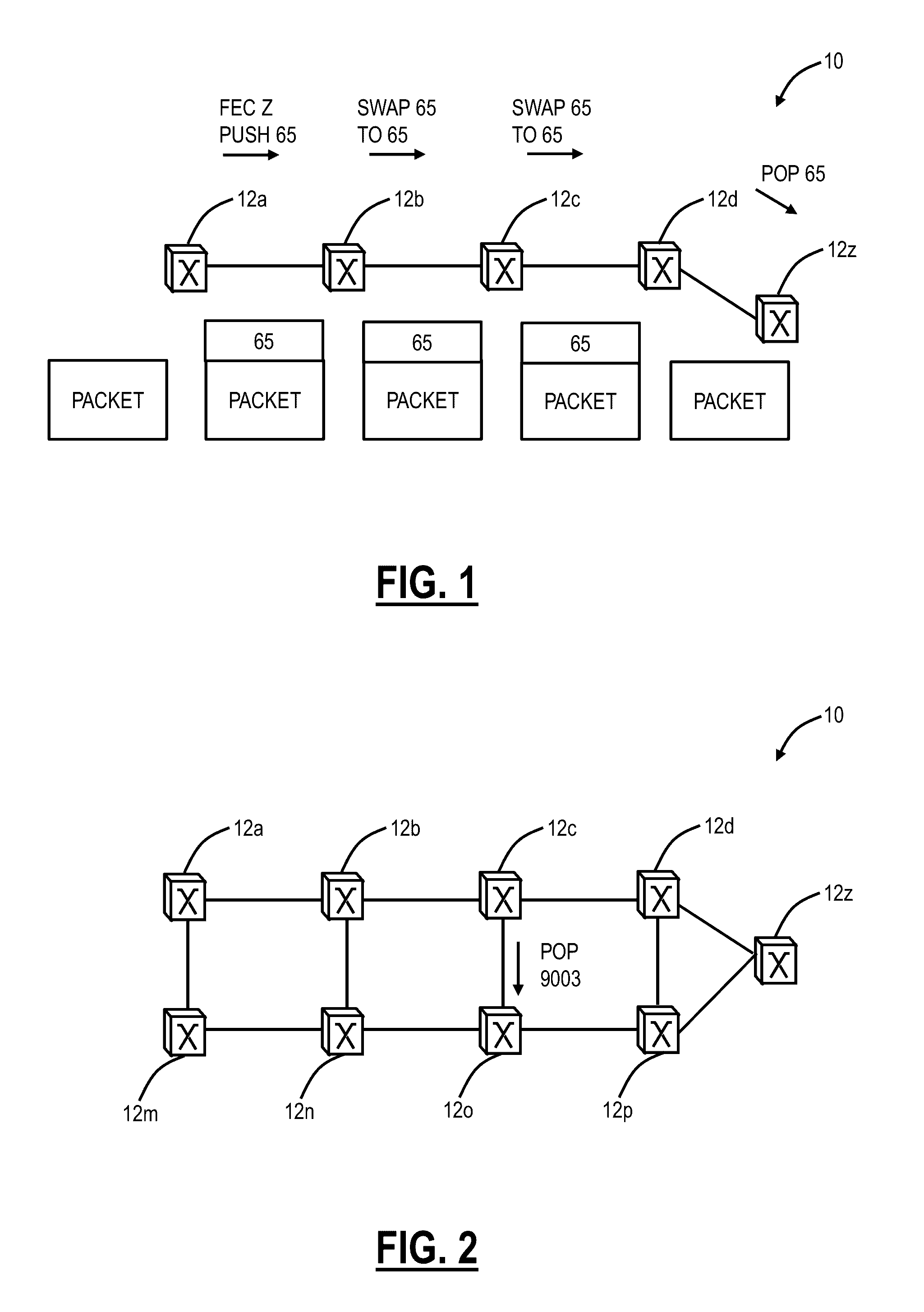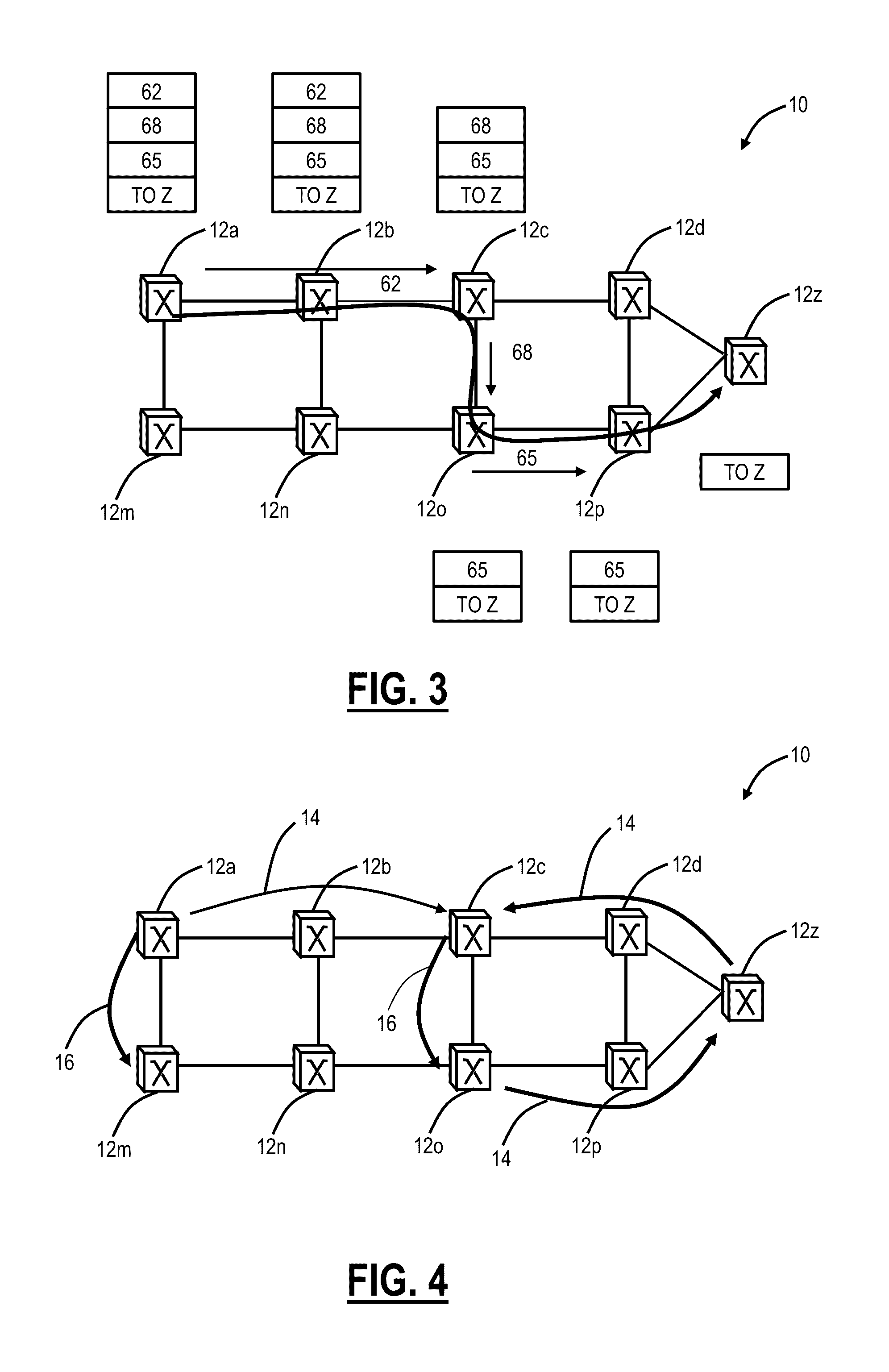Multicast systems and methods for segment routing
a multicast system and segment routing technology, applied in the field of network working systems and methods, can solve problems such as poor restoration performan
- Summary
- Abstract
- Description
- Claims
- Application Information
AI Technical Summary
Benefits of technology
Problems solved by technology
Method used
Image
Examples
example node
[0071]Referring to FIG. 9, in an exemplary embodiment, a block diagram illustrates an exemplary implementation of a node 200 which may be used with the systems and methods. In this exemplary embodiment, the node 200 is a switch for illustration purposes, but those of ordinary skill in the art will recognize the systems and methods described herein contemplate other types of network elements and other implementations. In this exemplary embodiment, the node 200 includes a plurality of ports 202, forwarding circuitry 204, and control circuitry 206. The node 200 can be an LER, LSR, P node, PE node, etc.
[0072]The ports 202 provide physical connectivity of the node 200 to other network elements, switches, routers, etc. The ports 202 are configured to provide ingress and egress of packets such as packets utilizing the systems and methods described herein. The forwarding circuitry 204 is configured to forward packets, such as with Segment Routing, S-MPLS, etc. The control circuitry 206 is c...
PUM
 Login to View More
Login to View More Abstract
Description
Claims
Application Information
 Login to View More
Login to View More - R&D
- Intellectual Property
- Life Sciences
- Materials
- Tech Scout
- Unparalleled Data Quality
- Higher Quality Content
- 60% Fewer Hallucinations
Browse by: Latest US Patents, China's latest patents, Technical Efficacy Thesaurus, Application Domain, Technology Topic, Popular Technical Reports.
© 2025 PatSnap. All rights reserved.Legal|Privacy policy|Modern Slavery Act Transparency Statement|Sitemap|About US| Contact US: help@patsnap.com



